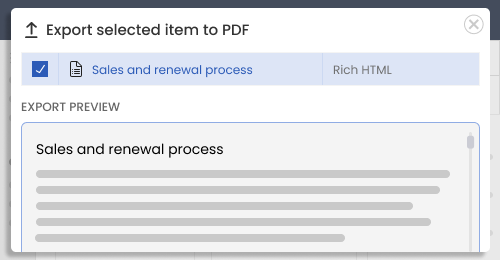Digital Transformation in Manufacturing
Adapt, Evolve, or Become Obsolete
The Future of Manufacturing: Embracing Digital Transformation

Digital transformation is rapidly changing the manufacturing industry. By 2027, global spending on digital transformation is expected to exceed $3.4 trillion, with discrete manufacturing leading all industries.
Staying ahead of digital trends is crucial not only for operational efficiency but also for enhancing customer experience, ensuring superior product quality, and gaining a competitive advantage in an ever-evolving industrial landscape.
To help you navigate this digital shift, we’ve created a detailed guide on digital transformation in manufacturing. Whether you’re looking to enhance your factory operations, streamline supply chain management, or better connect with your customers, this guide has everything you need to craft a successful strategy and make the most of these exciting opportunities.
What is Digital Transformation in Manufacturing?
Digital transformation in manufacturing means using technology to make production smarter and more efficient. It involves integrating tools like automation, data analytics, and connected devices to streamline processes, reduce errors, and improve overall performance. Essentially, it’s about updating traditional methods to keep up with the latest tech and stay competitive.

Crank Up the Efficiency with VisualSP
VisualSP simplifies digital transformation in manufacturing by offering real-time help and training as your team adapts to new technologies. As a Digital Adoption Platform, VisualSP provides in-app support to your users, ensuring that your staff quickly learns and efficiently uses new tools without the usual tech struggles.
Top Benefits of Digital Transformation in Manufacturing
Digital transformation is reshaping manufacturing businesses, bringing a range of benefits that enhance both operations and overall performance. Key advantages include:
Smart Manufacturing
Digital tools and IoT devices enable manufacturers to streamline production processes, reduce downtime, and improve machine performance through real-time monitoring and automation.
Predictive Maintenance
Advanced analytics help predict equipment failures before they occur, minimizing disruptions and extending the lifespan of machinery.
Enhanced Supply Chain Management
Digital transformation allows for better tracking and coordination across the supply chain, improving inventory management and reducing lead times.
Cost Savings
Automation and digital tools reduce labor costs and operational expenses by streamlining processes and minimizing manual tasks.
Real-Time Data
Manufacturers can leverage big data to gain insights into production efficiency, quality control, and market trends, enabling more informed decision-making.
Customized Solutions
With data-driven insights, manufacturers can tailor solutions to specific needs, optimizing performance and meeting market demands more effectively.
Improved Security
Enhanced cybersecurity measures help protect sensitive data and ensure safe operations throughout the manufacturing process.
Sustainability
Digital tools support greener practices by optimizing resource use, reducing waste, and improving energy efficiency.
Innovation
Embracing digital transformation drives the development of new technologies and business models, keeping your manufacturing processes at the cutting edge.

Upgrade your manufacturing operations with the latest digital tools to enhance efficiency and performance. For a seamless transition, use VisualSP to provide your team with real-time support and training.
Start your digital transformation today with VisualSP.
Examples of Digital Transformation in Manufacturing
Digital transformation is making a big impact on the manufacturing sector. Here’s how it’s reshaping the industry:
Digital Transformation Trends in Manufacturing
The manufacturing industry is embracing several key trends as part of its digital transformation journey:
Automation Growth
Increased use of robotics and AI to streamline production and reduce human error.
Smart Factories
Integration of IoT devices to create interconnected, data-driven manufacturing environments.
Advanced Analytics
Sustainable Practices
Adoption of technologies that support energy efficiency and waste reduction.
Connected Supply Chains
Enhanced visibility and control over supply chain activities through digital tools.
Join the Leader in Digital Transformation
VisualSP is a digital adoption platform that drives digital transformation in the manufacturing industry.
Addressing Challenges of Digital Transformation in Manufacturing
Despite the benefits, manufacturers face several challenges in their digital transformation journey:
Data Privacy and Security
Protecting sensitive production and business data from cyber threats.
Implement strong encryption, conduct regular security audits, and train staff on best practices for data protection.
Legacy Systems
Integrating new digital solutions with outdated systems can be complex and costly.
Gradually phase out old systems, invest in integration tools, and plan for continuous upgrades.
Regulatory Compliance
Ensuring adherence to industry regulations, especially regarding data and safety standards.
Stay updated on regulatory changes, invest in compliance management tools, and maintain a dedicated compliance team.
Skills Gap
Finding and retaining employees with the right digital skills.
Offer competitive compensation, provide training programs, and collaborate with educational institutions to build a skilled workforce.
Cultural Resistance
Overcoming resistance to change within the organization.
Promote a culture of innovation, clearly communicate the benefits of digital transformation, and involve employees in the process.
Customer Adoption
Encouraging adoption of new digital tools and systems.
Develop user-friendly digital tools, offer comprehensive training, and provide support to ease the transition.
Cost of Implementation
Managing the initial costs of adopting digital technologies.
Focus on cost-effective solutions, implement changes in stages, and demonstrate ROI through pilot projects.
Your Digital Transformation Partner
Elevate your manufacturing operations with VisualSP. Our platform offers seamless support and training to help your team quickly master new technologies and ensure a smooth transition.

Strategies for Successful Digital Transformation in Manufacturing
- Leadership and Vision
- Culture and Change Management
- Technology Implementation and Integration
- Data Management and Analytics
- Continuous Improvement and Learning
Executive Sponsorship
Secure strong support from leadership to guide the transformation and allocate necessary resources.
Transformation Team
Create a dedicated team to drive and manage digital transformation efforts.
Foster Innovation
Build a culture that embraces new technologies and innovative approaches.
Change Management Plan
Develop a strategy to address staff concerns, provide ongoing training, and support throughout the transition.
Phased Rollout
Introduce digital solutions in stages, focusing on areas with the greatest impact first.
Seamless Integration
Choose technologies that work well with existing systems to ensure smooth operations.
Data Governance
Implement clear policies for managing data across all systems.
Analytics Expertise
Build a team to analyze data, track trends, and extract actionable insights.
Monitor Impact
Regularly evaluate the effectiveness of digital transformation initiatives and track key performance indicators.
Embrace Learning
Stay updated with the latest trends in manufacturing technology and refine your strategy as needed.
Empowering Users with VisualSP
For a smooth transition to new manufacturing technologies, consider VisualSP. As a digital adoption platform, VisualSP integrates with your existing systems to offer real-time, in-context guidance and support. Here’s how VisualSP can help:
Accelerate Onboarding
Use interactive guides and walkthroughs to help users quickly understand and use new tools.
Contextual Assistance
Provide real-time help based on user actions to simplify complex tasks.
Knowledge Base
Access a searchable library of articles, videos, and FAQs for additional support.
Customizable Content
Tailor help content to your specific needs with easy-to-use templates and AI assistance.
Consistent Support
Ensure a unified support experience across all your manufacturing applications.
Usage Reporting
Track metrics such as time saved on training and improved productivity to measure the impact of VisualSP.
Exportabe Help Content
Convert any Help Item or Walkthrough into a professional PDF for printing or offline use. Personalize layouts, incorporate screenshots, and generate training materials effortlessly.
Ready to elevate your manufacturing processes?
Start for free with VisualSP today
Frequently Asked Questions
What is digital transformation in manufacturing?
Digital transformation in manufacturing involves adopting advanced technologies to enhance production efficiency, improve operations, and drive innovation.
Why is digital transformation important in manufacturing?
It’s crucial because it boosts efficiency, reduces costs, and helps manufacturers stay competitive by modernizing production processes.
Who drives digital transformation in manufacturing?
Leadership provides the vision and resources, but successful transformation requires collaboration across all levels of the organization.
What are the key digital transformation trends in manufacturing?
Trends include increased automation, smart factories, advanced analytics, sustainable practices, and connected supply chains.
How can success in digital transformation be measured?
Success can be assessed by tracking improvements in production efficiency, cost reductions, and overall ROI from digital investments.
What are common challenges in digital transformation?
Challenges include data security, integrating legacy systems, regulatory compliance, skills gaps, cultural resistance, and managing implementation costs.
How can manufacturers ensure data security during digital transformation?
Implement strong security measures, stay compliant with regulations, and regularly update security protocols.
What are the long-term benefits of digital transformation?
Long-term benefits include increased operational efficiency, enhanced market agility, greater sustainability, and the ability to innovate.
What is the difference between digitization and digitalization in manufacturing?
Digitization is converting physical data into digital form, while digitalization involves transforming entire processes and systems using digital technologies.
What is the role of a Digital Adoption Platform (DAP) in manufacturing?
A DAP helps users quickly adapt to new technologies by providing real-time guidance and support, making the transition smoother and more efficient. It also ensures a greater return on investment in the digital products you invest in.
Got more questions? Take a look at more FAQ’s about VisualSP.
Learn More About Digital Transformation

Digital Transformation Trends You Need to Know About in 2024
Read now

Top Digital Adoption Platforms
Read now

Digital Transformation Solutions: A Complete Guide
Read now







